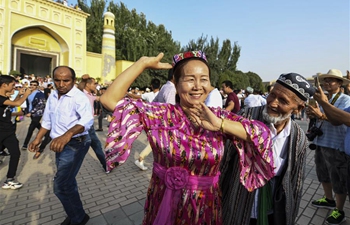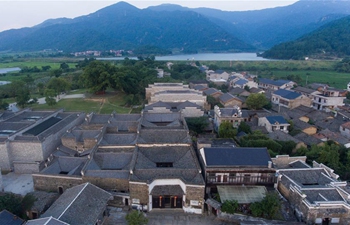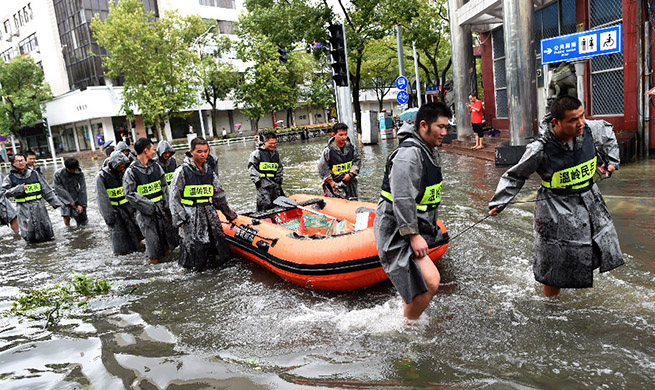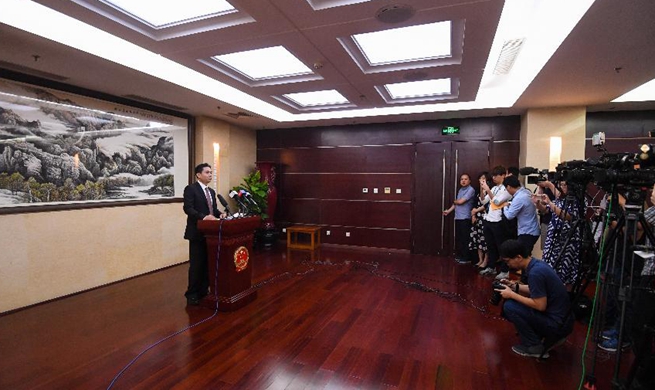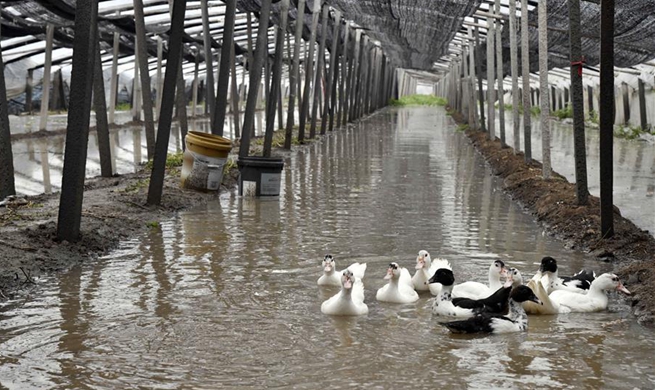by Xinhua writer Jiang Li
BEIJING, Aug. 12 (Xinhua) -- The Kashmir issue, a dispute born out of the region's colonial history, was a flashpoint of two wars and a spate of armed conflicts between India and Pakistan over the past 70 years.
The situation, which remained tense since earlier this year after the two countries exchanged airstrikes for the first time in decades, worsened once again following India's move on Aug. 5 to revoke the "special status" of India-controlled Kashmir, and split it into two Union territories.
India's decision to eliminate autonomy of Kashmir, a mountainous stretch that lies in the north of the South Asian subcontinent, was described as the biggest political move in nearly 70 years in one of the world's most militarized regions. One Indian newspaper carried a front-page story titled "History, in one stroke."
The move sparked outrage from Pakistan, which downgraded its diplomatic relations with India, expelled the Indian high commissioner and suspended trade.
India and Pakistan have inherited the Kashmir issue from their shared colonial history of centuries.
When the South Asian subcontinent gained its independence after World War II, the British colonialists left behind them the Mountbatten Plan and a divided region, the root cause of turmoil and violence.
During decades of sanguinary conflicts and territorial disputes, life of people in Kashmir has been a disaster. According to data gathered by local civil society, around 160 civilians were killed in 2018, which is believed to be the highest number in over a decade, a UN report said in July.
The past year also registered the highest number of conflict-related casualties since 2008 with 586 people killed, including 267 members of armed groups and 159 security forces personnel, said the report.
Since nobody could turn the clock back and rewrite the history, both sides should refrain from any unilateral action that may complicate the current critical situation in the region.
UN Secretary-General Antonio Guterres has twice this week called on India and Pakistan to exercise "maximum restraint."
Expressing grave concern over the recent escalation of turmoil in Kashmir, Chinese State Councilor and Foreign Minister Wang Yi voiced opposition to any unilateral action, urging the issue to be properly handled in a peaceful way in line with the UN Charter, relevant resolutions of the UN Security Council and bilateral agreements between Pakistan and India.
In addition, New Delhi's policy shift further complicates its boundary issue with China as its move to change the status of Kashmir includes the formation of Ladakh, where the western section of the China-India boundary is located, as one of the Union territories.
Beijing has made it clear that its position remains unchanged that China is opposed to India's inclusion of the Chinese territory into its administrative jurisdiction. And China will not recognize the legitimacy of India's action to undermine China's territorial sovereignty by unilaterally changing its domestic law.
Chinese Vice President Wang Qishan told India's Minister of External Affairs Subrahmanyam Jaishankar on Monday in Beijing that under the guidance of leaders from the two countries, China and India have enjoyed a further development of cooperation across-the-board and a sound momentum of bilateral relations.
To sustain such a sound momentum, India should properly handle its differences with China, especially on territorial issues.
Ultimately, it is up to countries concerned to come together to maintain regional peace and stability. As long as they can join hands, the South Asian subcontinent, which used to enjoy peace and prosperity for millenniums, will have a good chance to outlast the poisonous legacies of Western colonialism.







